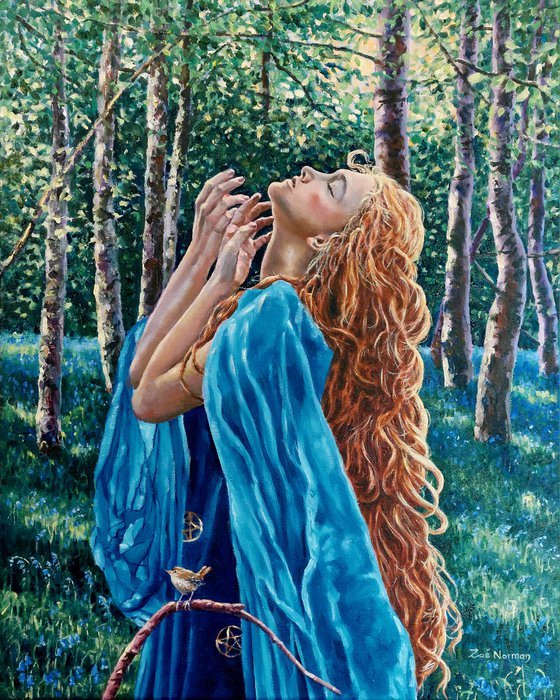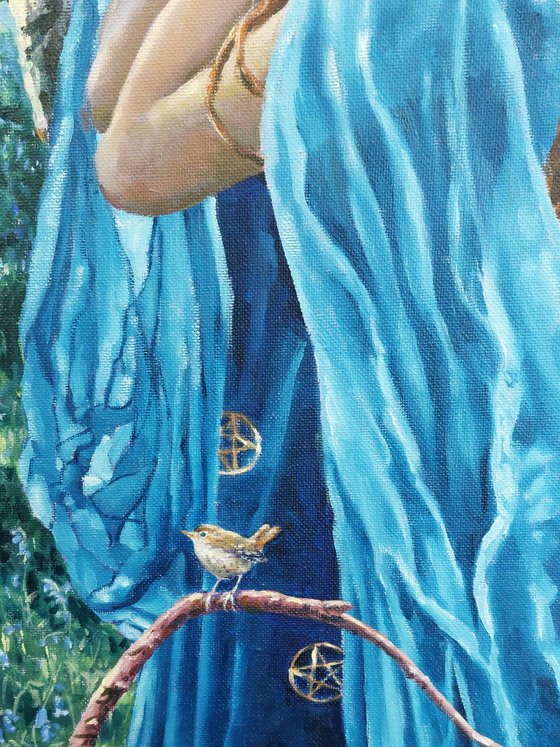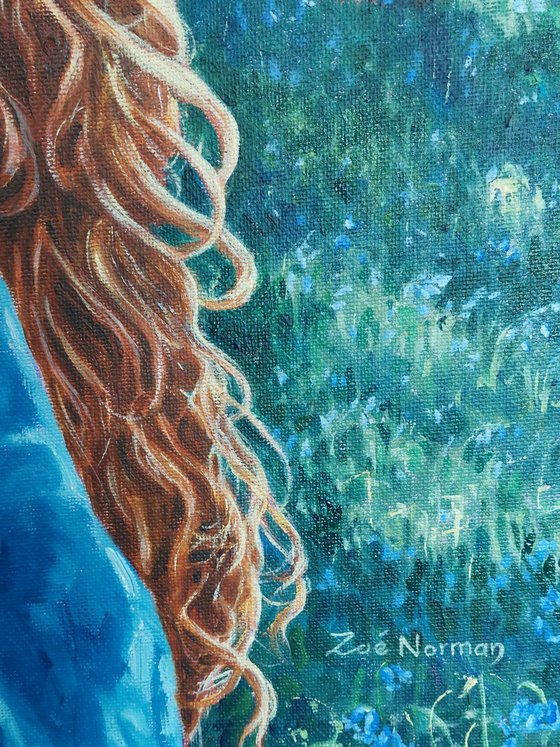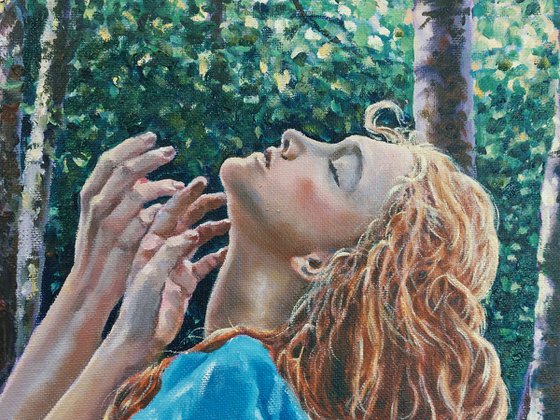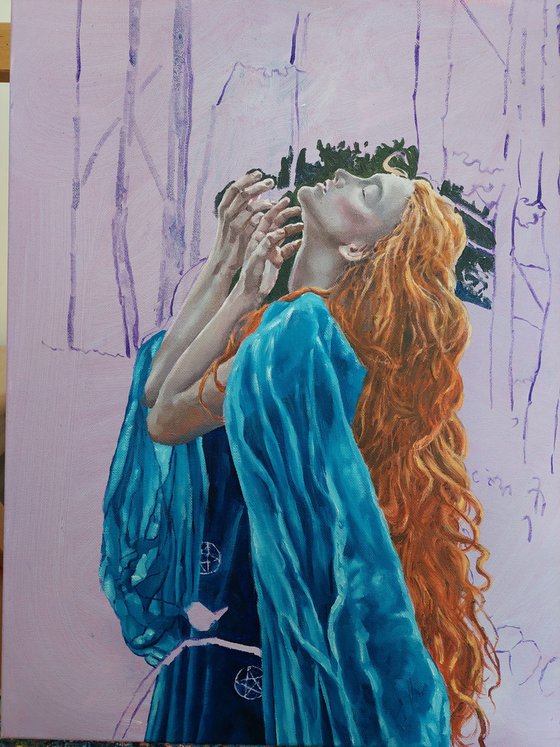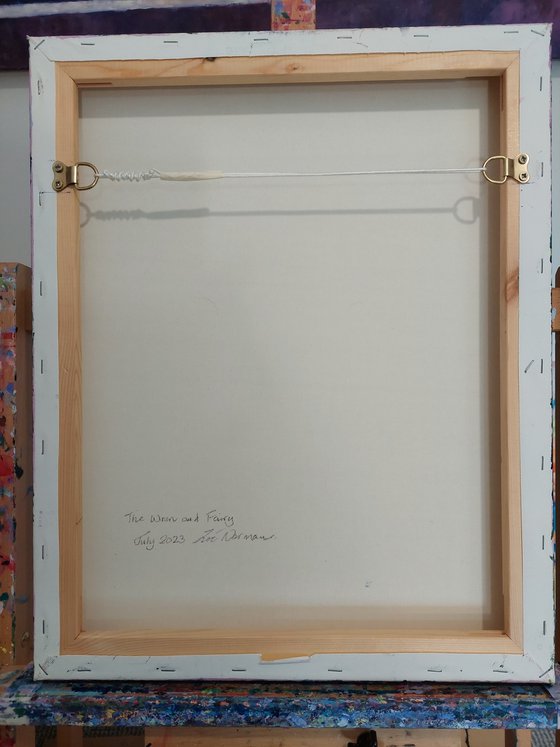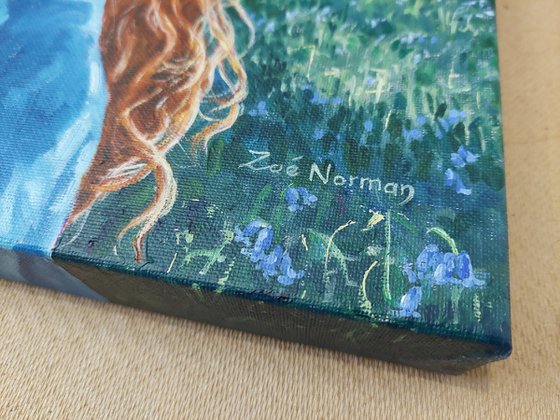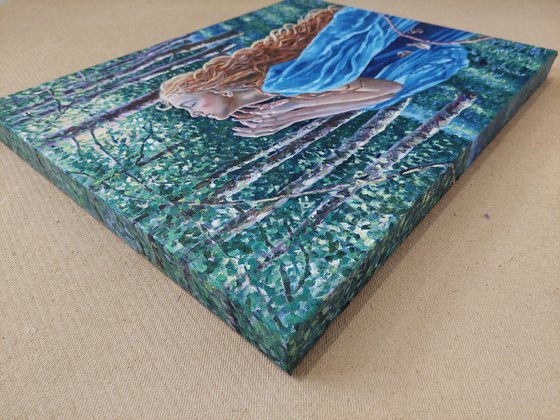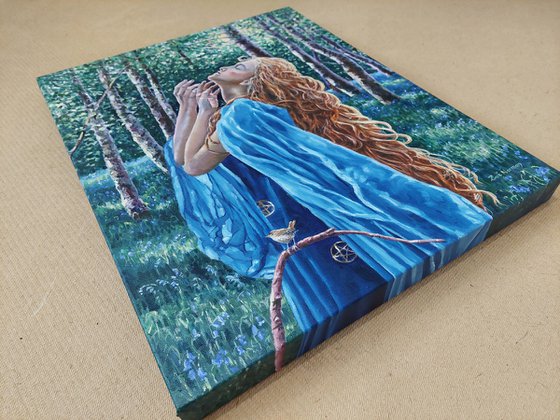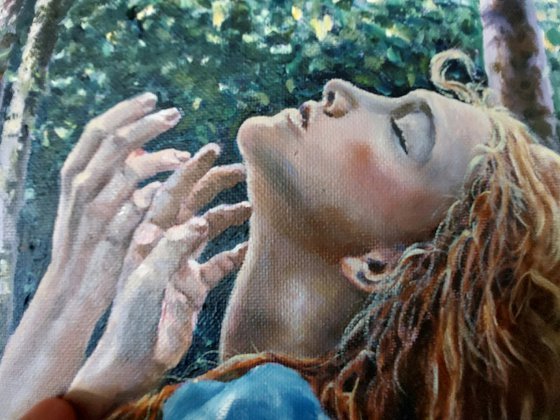- By medium
- By subject
- By budget
- Sales
- Gift cards
- Discover all art
- Artists
- Editors’ picks
- Ideas
Original artwork description:
Contemporary Impressionism.
My painting was inspired by the old legend of a fairy/witch transforming into a Wren to avoid persecution. It's a very old English legend later adopted by the early Christian's and my local village of Wreningham is named after her.
The wren is also known as "fairy bird": a portent of fairy encounters, and sometimes a fairy in disguise. The wren was sacred to Celtic druids, and to the Welsh poet-magician Taliesin, thus it was unlucky to kill the wren at any time of year except during the ceremonial "Hunting of the Wren," around the winter solstice. In this curious custom (still practiced in some rural areas of the British Isles and France), "Wren Boys" dress in rag-tag costumes, bang on pots, pans and drums, and walk in procession behind a wren killed and mounted upon a pole decorated with oak leaves and mistletoe. In some areas, Wren Boys also appear on Michaelmas, 12th Night, or St. Stephen's Day carrying a live wren from cottage to cottage (in a small "Wren House" decorated with ribbons), collecting tributes of coins and mugs of beer wherever they stop. The wren is known as the king of the birds, an honorific explained in the following story: All the birds held a parliament and decided that whoever could fly the highest and fastest would be crowned king. The eagle easily outdistanced the others, but the clever wren hid under his wing until the eagle faltered -- then the wren jumped out and flew higher.
The painting continues around the edges so framing is optional.
Signed on the front and accompanied by a certificate of authenticity.
Zoe Elizabeth Norman is an award winning artist and her paintings are in public and private collections around the world.
Materials used:
Professional quality oil paints and stretched cotton canvas over wooden frame.
Tags:
#oil painting #legend #impressionist art #female portrait #beautiful woman #red headed #fairy #witch #wren #wren birdThe Wren and Fairy (2023) Oil painting
by Zoe Elizabeth Norman
91 Artist Reviews
£2,000 Sold
- Oil painting on Canvas
- One of a kind artwork
- Size: 40 x 50 x 3.5cm (unframed) / 47 x 57cm (actual image size)
- Ready to hang
- Signed on the front
- Style: Impressionistic
- Subject: People and portraits
Do you like this artwork?
This artwork has sold, but the artist is accepting commission requests. Commissioning an artwork is easy and you get a perfectly personalised piece.
Loading
Original artwork description
Contemporary Impressionism.
My painting was inspired by the old legend of a fairy/witch transforming into a Wren to avoid persecution. It's a very old English legend later adopted by the early Christian's and my local village of Wreningham is named after her.
The wren is also known as "fairy bird": a portent of fairy encounters, and sometimes a fairy in disguise. The wren was sacred to Celtic druids, and to the Welsh poet-magician Taliesin, thus it was unlucky to kill the wren at any time of year except during the ceremonial "Hunting of the Wren," around the winter solstice. In this curious custom (still practiced in some rural areas of the British Isles and France), "Wren Boys" dress in rag-tag costumes, bang on pots, pans and drums, and walk in procession behind a wren killed and mounted upon a pole decorated with oak leaves and mistletoe. In some areas, Wren Boys also appear on Michaelmas, 12th Night, or St. Stephen's Day carrying a live wren from cottage to cottage (in a small "Wren House" decorated with ribbons), collecting tributes of coins and mugs of beer wherever they stop. The wren is known as the king of the birds, an honorific explained in the following story: All the birds held a parliament and decided that whoever could fly the highest and fastest would be crowned king. The eagle easily outdistanced the others, but the clever wren hid under his wing until the eagle faltered -- then the wren jumped out and flew higher.
The painting continues around the edges so framing is optional.
Signed on the front and accompanied by a certificate of authenticity.
Zoe Elizabeth Norman is an award winning artist and her paintings are in public and private collections around the world.
Materials used:
Professional quality oil paints and stretched cotton canvas over wooden frame.
Tags:
#oil painting #legend #impressionist art #female portrait #beautiful woman #red headed #fairy #witch #wren #wren bird14 day money back guaranteeLearn more
